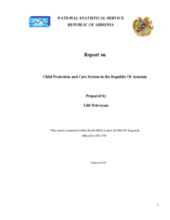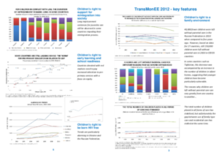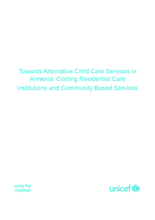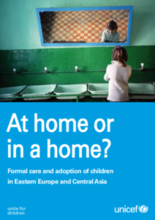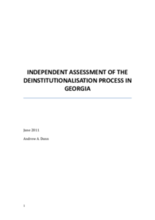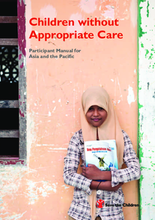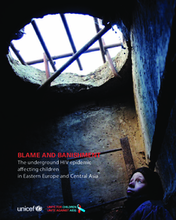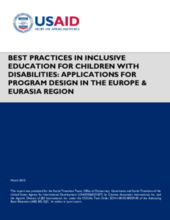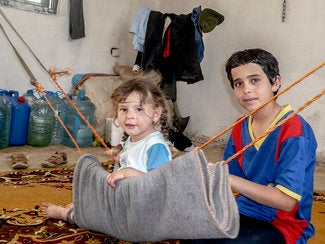

Displaying 121 - 130 of 171
This document from the National Statistical Service of the Republic of Armenia provides an overview and assessment of the alternative care system in the country.
TransMonEE is a database that captures a vast range of data on social and economic issues relevant to the situation and wellbeing of children, adolescents and women in 28 countries of Central and Eastern Europe, Commonwealth of Independent States and the European Union. This document includes inter-country comparisons of data on several issues related to children’s care.
This recent study by UNICEF in Armenia costed different types of residential care and community based services.
Published by UNICEF, the report At Home or in a Home, provides an overview of the major trends and concerns about children in formal care and institutions as well as adoption Central and Eastern Europe and Central Asia.
Event to launch two new reports on importance of deinstitutionalization for all persons
Adolescents living in orphanages are at a disadvantage with respect to mental health. The aim of this study was to assess the distribution of psychological symptoms and their association with the level of physical activity (PA) in adolescents living in orphanages.
This independent assessment examined, specifically, the deinstitutionalisation of children in special education boarding schools and child care institutions in the Republic of Georgia.
This manual offers a training session targeted at policy makers, professionals and paraprofessionals who are already working on programs to support children without appropriate care, or who may begin work in this area. This workshop focuses on children in developing contexts, who require support within their families and those who need an alternative care placement.
An eye-opening analysis of the social, economic, political and family problems contributing to an overwhelming HIV epidemic that disproportionately affects young people, adolescents and children.
The purpose of this study is to provide an overview of best practices in inclusive education, inform stakeholders of the current status of inclusive education in the region, describe the contextual factors which affect program implementation, and make recommendations of practical start-up steps for inclusive education programs.

